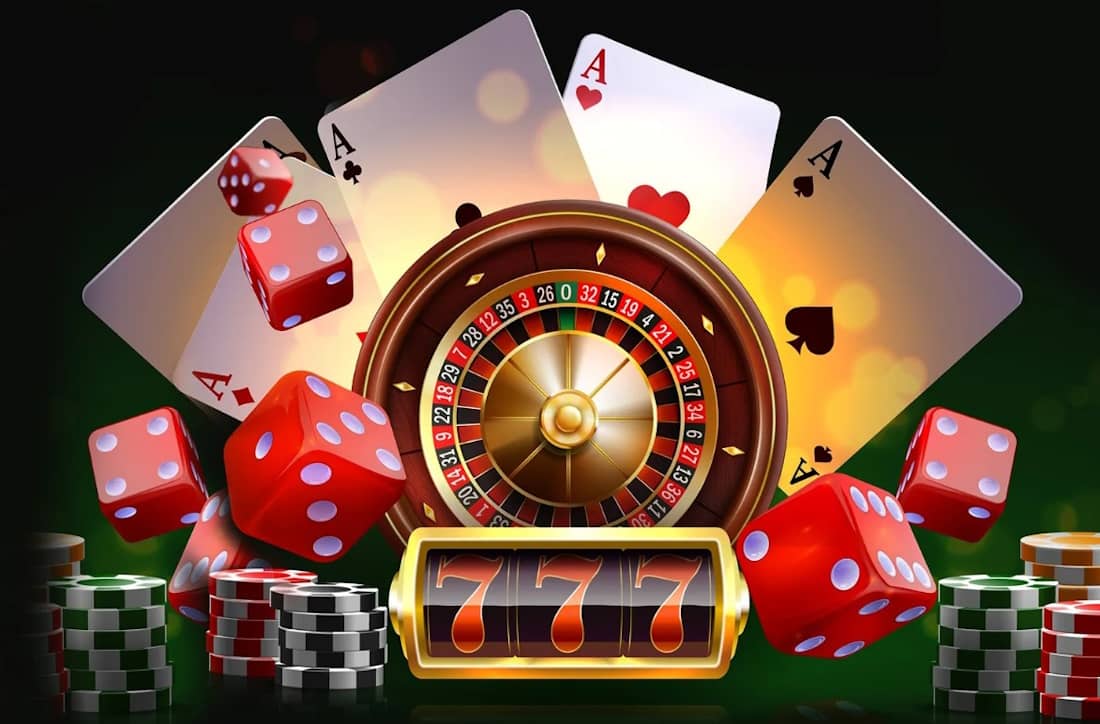When we think of gambling games, the first images that frequently cross our minds are those of spinning wheel devices, card chips clinking on felt surfaces, and cubes rolling across a betting surface. While numerous consider these games as simple pastimes fueled by chance, a deeper exploration reveals a fascinating blend of tactics, skill, and community interaction that elevates them well beyond basic luck. Whether you are a seasoned player or a curious newcomer, grasping the subtleties of these activities can greatly enhance your enjoyment and appreciation.
Casino games have evolved over hundreds of years, with various cultures contributing to their rich histories and different forms. From the intricate strategies of 21 to the deception tactics in card games, players engage in a contest of wits as much as a risk on odds. This exciting interplay between luck and expertise creates a thrilling atmosphere that draws countless people to casinos worldwide. As we explore the realm of card games, we will uncover the strategies that can shift the odds in your favor and the social elements that make these games a popular choice for leisure and interaction.
The Approach of Casino Games
Table gaming frequently combine a mix of ability and chance, which makes them intriguing for players who like a test. https://bongdalufuni.com Every game has their unique set of rules and tactics that can affect the results. For example, in games like blackjack, players are required to use strategies like counting cards and understanding the probabilities to make informed decisions. This expertise can significantly improve their winning potential, distinguishing experienced participants from novices who may rely solely on chance.
In contrast, games such as roulette may seem to be purely based on luck, but strategic thinking can also come into play. Participants can select between various betting strategies, such as the Martingale strategy, in which they raise their wagers after a loss. This approach can establish a more controlled way to the game. Grasping the odds of specific bets can also help participants make smarter decisions on the roulette table, demonstrating that even in titles of chance, strategy can enhance the enjoyment.
Additionally, poker stands out as a game that heavily focuses on strategy. In contrast to most gaming titles, the game of poker combines skill, psychology, and luck. Participants must not only concentrate on the cards they are given but also take into account their rivals’ actions and betting patterns. Mastering concepts like table position, pot odds, and reading bluffing is crucial for success. This depth of strategy in poker often leads to a more immersive experience for players, where their decisions and abilities greatly impact the match’s results.
Comprehending Chance and Ratios
In the domain of gambling games, likelihood and odds hold a critical role in determining a gambler’s possible results. Every match has its own collection of principles that define how the probability of winning or failing is measured. For example, in games like 21, players have a chance to modify their odds through tactics, whereas in matches like the wheel, the outcomes are purely governed by luck. Grasping how these probabilities are measured can significantly impact how a player approaches the game.
Ratios are typically presented in two forms: ratio and numeric. Ratio odds show the ratio of the amount won to the amount bet, whereas numeric ratios show the total return for a winning bet, which includes the initial bet. For example, if a match has odds of 5 to 1, this implies that for every one unit bet, a player could gain five dollars if they win. Understanding how to understand these odds allows gamblers to evaluate their possible earnings and formulate more informed choices during gameplay.

Players should also be conscious of the casino advantage, which is the casino’s inherent benefit over the gamblers. Each match has a different advantage, and understanding this concept is important for managing one’s hopes and funds. Games with a reduced advantage, such as 21 and baccarat, typically offer superior ratios for gamblers compared to games like slot machines and keno. By recognizing the connection between probability, odds, and the house edge, players can enhance their gambling engagement and plan more effectively.
The Aspect of Casino Table Games
Casino games at casinos are often seen as a center of social interaction, drawing players together in a collective experience that extends far beyond the mere act of gambling. The atmosphere at a poker table can be vibrant, with gamblers engaging not only with the game itself but also with one another. Joy, excitement, and, sometimes, playful teasing create connections that enhance the overall experience of the gaming experience. This communal aspect can turn a solitary endeavor into a lively social event, making casino games particularly appealing.
One of the intriguing elements of gaming at tables is the way it cultivates camaraderie among participants. Whether it’s teaming up to beat the dealer at a craps table or sharing stories between hands in a poker game, the environment encourages interaction. Players often share tips or strategies, creating a sense of togetherness that enhances the fun. This social dynamic can make new gamblers feel included and less daunted by the competitive nature of gaming. As the game continues, friendships may form, leading to a sense of belonging that keeps players returning to the table.
Moreover, the social aspect of table gaming extends outside just the participants. Casino staff play a crucial role in encouraging interaction and maintaining the flow of the game. Their ability to engage gamblers with warm dialogue and their expertise in running the table can create an welcoming atmosphere. This relationship between participants and dealers adds another layer of enjoyment, where players feel bonded not only to each other but also to the staff. Such interactions are often what make the experience memorable, as players leave with tales to tell and relationships made, reinforcing the notion that table games are truly about more than just chance.